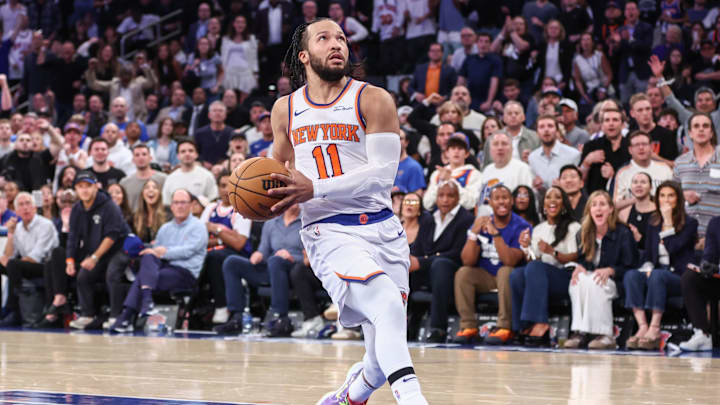The New York Knicks are off to a hot start in the postseason, taking a 1–0 lead over the Detroit Pistons on Saturday evening. Fueled by a massive 21–0 run in the fourth quarter, New York seized control and never looked back, setting the tone for how the rest of the series could unfold.
While optimism is fair for Knicks fans, Pistons supporters are more likely seeing the glass half-empty. Their team is down 0–1, still hasn’t recorded a postseason win since 2008, and may have let the emotions of playoff basketball get the best of them. Though the final score showed just an 11-point loss — a number that seems worse than it felt — it’s less about the margin and more about how New York can keep its foot on the gas instead of letting the playoff engine coast.
So, what does New York need to do to win Game 2?
3. Reward the bench
One major reason the Knicks thrived in Game 1 was the impact of their bench. A unit that ranked near the bottom of the league in points during the regular season came alive, with Cameron Payne scoring nine points in three minutes and finishing with 14 in just 15 minutes of play.
After Josh Hart picked up two quick fouls in the first quarter, Tom Thibodeau surprised everyone by inserting Landry Shamet into the mix with the starters. Shamet, who played just 10 minutes and scored two points, still gave the Knicks the defensive spark they needed.
That’s not even mentioning Mitchell Robinson’s contributions. Backing up Karl-Anthony Towns in his first playoff run with the Knicks, Robinson added six points, six rebounds and a momentum-shifting put-back dunk that brought the MSG crowd to life.
Detroit’s bench may have outscored New York’s, but the timing of the Knicks’ contributions mattered more. Thibodeau shouldn’t overthink it. Keep the bench involved — they earned their minutes.
2. Keep feeding Jalen Brunson
Jalen Brunson started Game 1 ice-cold, hitting just 2 out of 12 shots and struggling to get calls. Even though the Knicks held a slim lead at halftime, Brunson didn’t look like himself.
Then things changed.
After a rough third quarter and a knee collision with Dennis Schroder — followed by some in-game antics from Malik Beasley — Brunson flipped a switch. He scored 23 points and dished five assists with zero turnovers in the second half, finishing with a game-high 34 points.
There’s a reason he’s a finalist for Clutch Player of the Year. Brunson wears the captain’s title because he consistently delivers when the moment demands it. While no team should have to rely on one player to dig them out of a hole, Brunson thrives in those exact moments. Feeding him early and often — especially while the rest of the roster holds their own — may be key to keeping control of this series.
1. The Karl-Anthony Towns game
Knicks fans knew going into Game 1 that the Pistons would bring their trademark brand of basketball: ruthless aggression. That style quickly backfired when both Ausar Thompson and Jalen Duren picked up two early fouls in the first quarter.
That forced Detroit to turn to rookie Ron Holland and an overly aggressive Isaiah Stewart, giving New York’s bigs the chance to settle in and play within their rhythm. Despite being double-teamed on most possessions, Karl-Anthony Towns finished with 23 points and 11 rebounds in 39 minutes. By contrast, Duren was held to just seven points and six boards in 25 minutes.
Now, the Pistons may have to adjust even further. Isaiah Stewart's status for Game 2 is uncertain, leaving Detroit searching for another answer in the paint. If that’s the case, Towns should be the No. 1 scoring option from tip-off to final buzzer, taking full advantage of any mismatch that opens up.
